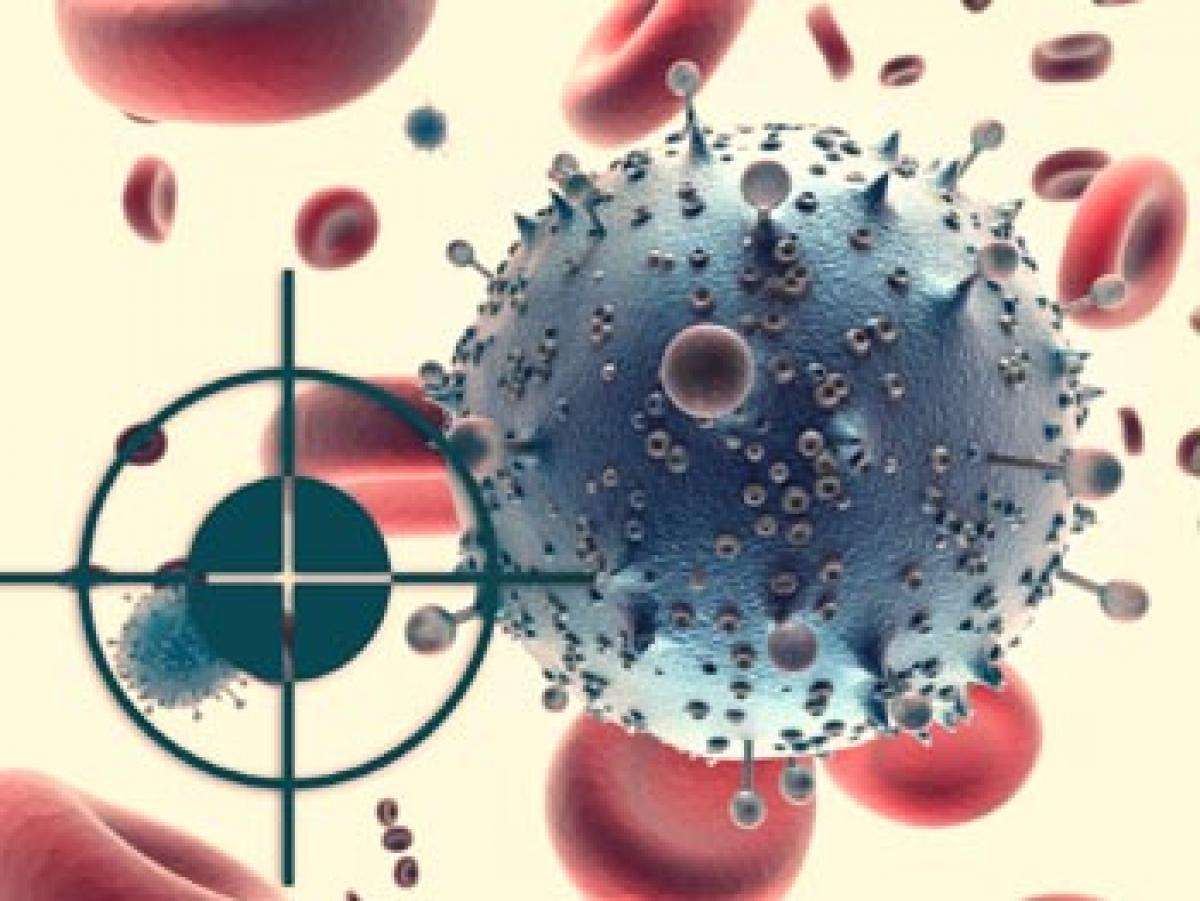Live
- Thrissur Pooram 2024: A Celebration of Tradition and Spirituality
- Akshaya Tritiya 2024: Date and Significance
- Kamada Ekadashi 2024: Date, Auspicious Timings And Significance
- Aamir Khan’s son Junaid wraps up filming for his second movie
- Vijay Sethupathi’s heartwarming gesture wins netizens’ hearts
- Excitement builds as Nabha Natesh and Priyadarshi paired up
- Gurinder Chadha all set to make a comeback to big screen
- Palle Sindhura Reddy flays YS Jagan during election campaign in Puttaparthi
- KK Raju files nomination amid public celebrations and predicts victory with 45k vote majority
- Vijayawada Central Candidate Vellampally Srinivas Campaigns in 28th Division Railway Colony
Just In

Lung cancer is one of the most widespread diseases and one of the hardest to effectively treat. In India, there are approximately 110 million current smokers that’s more than eight per cent of the total population.
While cigarette smoking is an undisputed cause of lung cancer, not all cases of the disease occur in smokers. Dr Senthil Rajappa, medical oncologist, Basavatarakam Indo-American Cancer Hospital speaks on challenges in creating a more holistic approach towards the disease
Lung cancer is one of the most widespread diseases and one of the hardest to effectively treat. In India, there are approximately 110 million current smokers that’s more than eight per cent of the total population. Being one of the major preventable causes of premature death and disease worldwide, smoking itself contributes to a large number of lung cancer diagnoses and lung cancer deaths each year.
“In India, lung cancer is the fifth most common cancer after cervical cancer and breast cancer. As per a research paper published in January 2015 in Indian Journal of Medical Research, lung cancer constitutes 6.9 per cent of all new cancer cases and 9.3 per cent of all cancer related deaths in both genders,” says Dr Senthil Rajappa, medical oncologist, Basavatarakam Indo-American Cancer Hospital.
Talking about the risk factor, he says “The major risk factor for developing lung cancer is tobacco use. However, a significant number of patients have no history of smoking. Considerably higher numbers of Indian patients with the disease are non-smokers, compared to the West. I have observed that each year, 30 per cent of lung cancer cases occur in non-smokers. Incidence and mortality rates in Hyderabad are 3,000 and 1,800 respectively.”
“Lung cancer can be caused due to environmental and genetic factors as well as exposure to asbestos, radon, uranium, arsenic, fumes and pesticides. A history of certain lung diseases and increased exposure to pollutants is also a reason for more cases of the disease’s occurrence,” he adds. “Smoking also leads to some genetic mutation that can be inherited and makes the second generation more vulnerable to lung cancer.
However, the impact of outdoor air pollution on lung cancer needs further study,” informs the doctors. Is quitting smoking associated with a reduced risk of lung cancer? “The risk of having lung cancer and other smoking-related illnesses decreases after you quit smoking and tobacco. It has health benefits that start right away.”
Commenting on main challenges in creating a more holistic approach and how can they be overcome, Dr Rajappa says, “The major challenge in India is failure to prevent exposure to carcinogenic substances in the form of smoke or pollution. The Government needs to do something to prevent smoking initiation at an early age to reduce the rate of tobacco consumption.
Limiting exposure to environmental tobacco smoke, regular exercise and a healthy diet may also decrease the risk of lung cancer as well as help prevent other diseases. Also, workers in high risk jobs should follow appropriate health and safety rules, like wearing protective equipment.”
About the bright spots and future direction of research and treatment in this area, he says “Advancements in oncology research have led to the development of more individualised treatment modalities called Targeted Therapy. While standard chemotherapy agents affect all body cells, targeted treatments like gefitinib, erlotinib and afatinib interfere with the development of cancer at the molecular level and block the growth and spread of cancer.
Lung cancer diagnosis with a good tissue biopsy and molecular testing is needed to ensure that the toxic chemotherapy procedure is limited or avoided and the patient gets the appropriate targeted therapy with the help of biomarkers.” “The choice of treatment depends on several factors, including type of lung cancer, stage of disease and patient factors (age, comorbidities), as well as biomarkers, histology, ECOG status and prior therapy. Targeted therapy is the treatment of choice in the future,” he concludes.

© 2024 Hyderabad Media House Limited/The Hans India. All rights reserved. Powered by hocalwire.com







